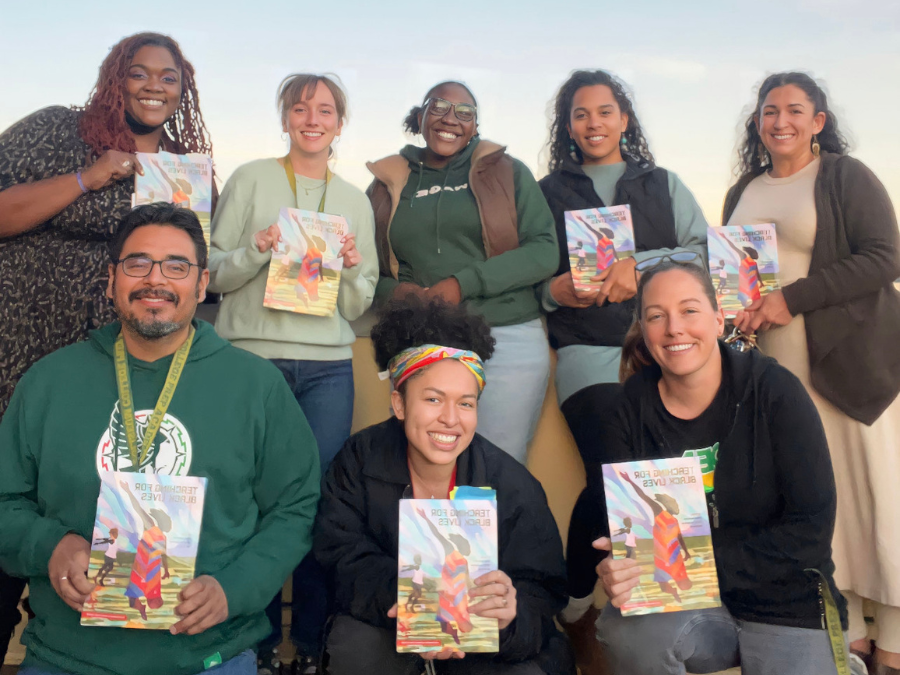
Oakland T4BL Study Group
We need a Teaching for Black Lives study group at our school to prepare our efforts to combat anti-Blackness and also to uplift and recognize the resistance, resilience, power, and excellence within the Black community. — Dr. Charquita Arnold
Sixteen educators from Coliseum College Prep Academy (6–12), in Oakland, California, meet monthly to prepare staff to combat anti-Blackness on campus and improve their confidence in leading equity work, and develop strong allies against oppression. In 2022, Dr. Charquita Arnold, 8th- and 9th-grade history teacher and study group coordinator, supported the first Black Lives Matter at School Week of Action at Coliseum College Prep Academy (CCPA). She noted:
Our teachers have the best intentions but still don’t have all of what they need to approach this work with the confidence, the intention, and the knowledge they need to be successful.
In 2023, the Oakland Teaching for Black Lives study group created a planning document with lessons and activities for each of the grade level divisions. CCPA teachers were supported with various resources from Seattle Public Schools and a presentation by Charquita, that contained suggested themes for the week.
Charquita reported that it was “a deep week.” On Monday, students learned about Henrietta Lacks and engaged with the 13 Principles by responding to prompts. On Tuesday, students learned “The History of Braids & Bans on Black Hair” and participated in a racial justice jigsaw activity about the historical roots of oppression. At the Black history month program, two students performed “Two Sets of Notes” by MK Asante.
In a study group meeting members discussed “Raised by Women” by Kelly Norman Ellis. Amy Carozza, the principal of CCPA, suggested that staff, in affinity groups, should discuss who they were raised by and share out at their next meeting. She prompted:
When do people feel accepted or don’t feel accepted?
What is the experience of going to the doctor for people?
What is the experience of going to the hairdresser?
What is the experience of going to a block party?
When have people felt or seen themselves valued genuinely within their community and outside their community?
Read a few of the study group members’ end of year reflections.
The activities, poems, and entries in the Teaching for Black Lives were so relevant and new to me. It gave me ideas on how to improve and strengthen our Black Lives Matter at School week of action next year.
As a white educator, this course helped me become more historically aware and culturally sensitive to the experience of my Black students and my Black co-workers. I am deeply grateful for the space this text opened and the conversations we had in response to the readings.
We initiated an anti-racist action committee that met regularly throughout the year in subcommittees focused on staff, students, and family. In these spaces we responded to feedback from Black students and families with action items meant to address their concerns. We used ideas from the text to inform how we approached this work.
I’ve realized that my practice as a librarian, and my personal analysis, is greatly enhanced when I have the opportunity to speak with other educators in a guided way. On top of integrating anti-racist practices in our day-to-day and unlearning violent ideologies, it’s also really important for educators to have a dedicated space to have these discussions.

